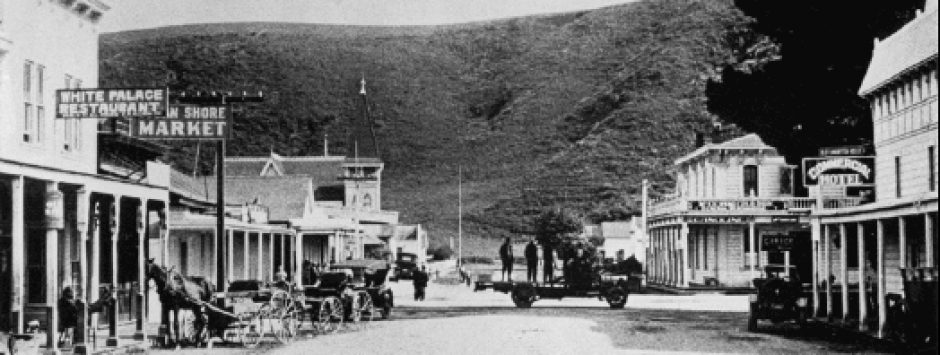By June Morrall
Wally Coburn was never going to work side-by-side with his millionaire landowner father; he had an illness, that, at the time, seemed incurable. But as often happens in life, fate intervened and presented Loren Coburn with another possibility: Carl J. Coburn, the ten-year-old who had stayed with the Loren Coburns at the Butano Dairy for six months.
He knew instinctively that Carl would be his surrogate son.
(Carl had been adopted by Loren’s brother Jehiel, and wife, Lucy, when he was four; Lucy was his aunt.)
Loren quickly evaluated Carl’s future potential. He was a bright kid that would grow into a handsome man; he already had the makings of a dazzling smile. He was everything Wally would never be.
There was no time wasted. Loren treated Carl as his own son, sending him to the University of the Pacific in 1893. The Pescaderans had the opportunity to size up their new resident, describing him as “…one of our most promising young men and…a bright and successful career is before him…”
Two years later Carl entered Stanford, which had been founded in 1885.. He pursued a career in Republican politics and was elected Pescadero’s Justice of the Peace. On a political roll, he next became the county supervisor from Pescadero.
His Uncle Loren had always been a busy man. He ran things at the Butano Dairy with 100 milk cows and 50 head of cattle. There was a house, barn, butter and cheese factory to look after.
Back in 1880 he had leased out, for $1.50 per acre, the land lying between Pigeon Point and Pescadero.
Loren also purchased the Gazos Mill, which had belonged to the Honorable Judge Horace Templeton, his arch-enemy during the ugly Pigeon Point Affair. The Gazos property included the mill, buildings and timber. The previous owner had a streak of very bad luck and creditors were knocking hard on his door. Considering the circumstances, Uncle Loren must have worked out a very good deal for the property.
Loren was often out of town. In King City, he owned some 10,000 acres and checked on the ranch he owned there.
He loved the business life, getting good deals, and he was invigorated by his many “wins.” Other than the great sadness associated with his son, Loren had little experience with losing.
He was a tough negotiator. He refused to change the terms of a new lease with the Portuguese whalers at Pigeon Point. He knew the whalers, good, reliable tenants, were not bringing in as many whales as they used to and refused to lower the rent. (When processed, the whales produced an oil used to light lamps in Pescadero and the Bay Area.)
He thought he could resolve any problems that might come up at beloved Pebble Beach. One day, everybody felt certain, a railroad would link Pescadero with San Francisco and Santa Cruz. Pescadero would no longer be an isolated village. Prosperity would touch everybody’s life.
Loren thought he could convince the railroad people to build a station at Pebble Beach which he believed he owned. Why not name it Coburnville, he thought. Or maybe that was just the rumor in Pescadero.
There was a huge difference of opinion about “who owned” Pebble Beach and the two sides could not resolve it with compromise.
